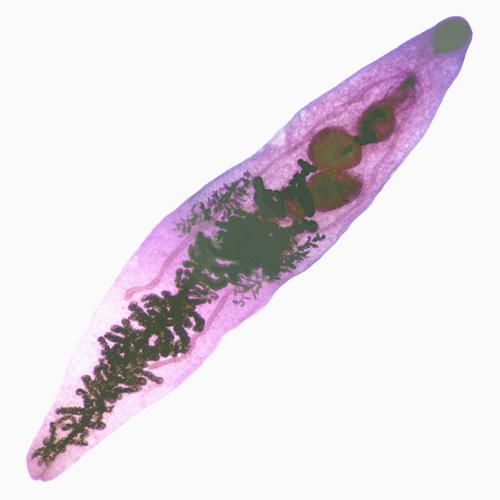As if fighting in the Vietnam War was not awful enough on its own, veterans are now finding out they could be at increased risk of a deadly form of cancer. A small pilot study conducted by the Department of Veterans Affairs has found a possible link between soldiers infected with a liver parasite and cancer of the bile duct.
The study included the blood samples of 50 Vietnam veterans at the Northport VA Medical Center in New York. Of those samples, more than 20 percent were positive or near-positive for worm-specific antibodies. These immunological tests cannot determine whether the infection is current, recent, or if it occurred in the distant past. The test also cannot determine the burden of infection or how intense it is.
There are three major liver trematodes that are responsible for infections in humans: Chlonorchis sinensis, Opisthorcis species, and Fasciola hepatica. The Chinese liver fluke, C. sinensis, is endemic in countries in the Far East such as China, Japan, Vietnam, Taiwan, and Korea. Infections typically occur after ingestion of raw or undercooked fish. There are other types of flukes that can infect other parts of the body such as the blood, pancreas, intestines, lung, and even the eye.
The life cycle of the trematodes can be completed in two different classes of hosts: definitive (humans, domestic, and wild animals) and intermediate (i.e. freshwater fish or snails).
The flukes enter the bile ducts within the liver and gallbladder and can reside there for 20-30 years. The presence of flukes causes chronic inflammation of the bile ducts that can result in scarring and enlargement of the ducts.
Most infections are asymptomatic but those people with severe infection can have abdominal pain and fatigue. Other sequelae of a chronic long-term infection can include the formation of stones within the gallbladder and bile ducts, superimposed bacterial infections and cancer of the bile ducts.
Individuals suffering from severe infections can have an enlarged liver with abdominal discomfort, intense itching, loss of appetite or no appetite, weight loss, nausea, vomiting, and indigestion. Jaundice may occur from either the flukes plugging up the bile ducts or from stones or cancer (cholangiocarcinoma) which results after a prolonged chronic infection. It is important to note that occasionally, intense itching is the initial symptom of bile duct cancer.
The current estimation is about 35 million people are infected globally with about 600 million people at risk of infection. Although the infection is rare in the West, travelers from endemic regions may harbor the infection and introduce it to non-endemic areas. In the United States, it is estimated that 26 percent of immigrants from Southeast Asian countries are actively infected with liver flukes.
Cholangiocarcinoma (CCC) is a cancer of the bile ducts within the liver and outside the liver. Chronic inflammation from a parasitic infection is a known cause of CCC. It is a slow growing cancer but upon detection, they are usually inoperable. Even with aggressive chemotherapy the median survival is about 6 months.
Although the VA is still trying to determine if CCC is more common in Vietnam veterans, hopefully, this study will increase awareness of this potentially deadly outcome. If more veterans get tested they may be able to receive the appropriate treatment before it is too late.




